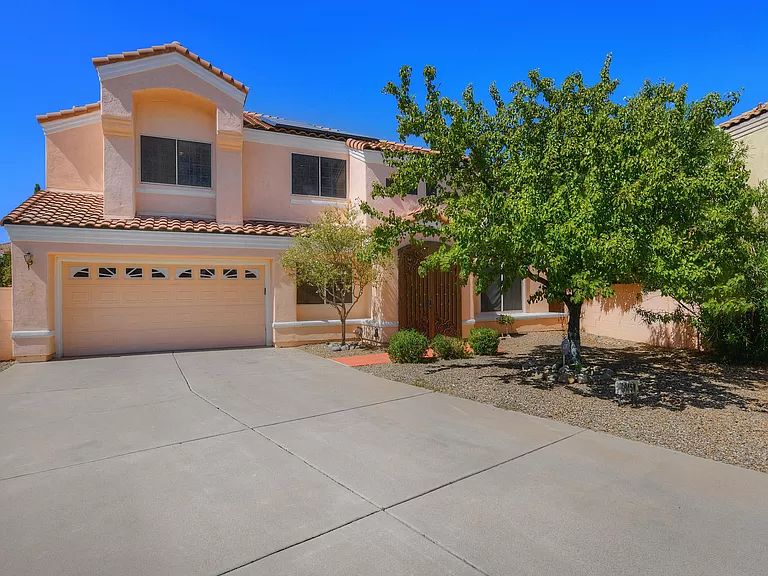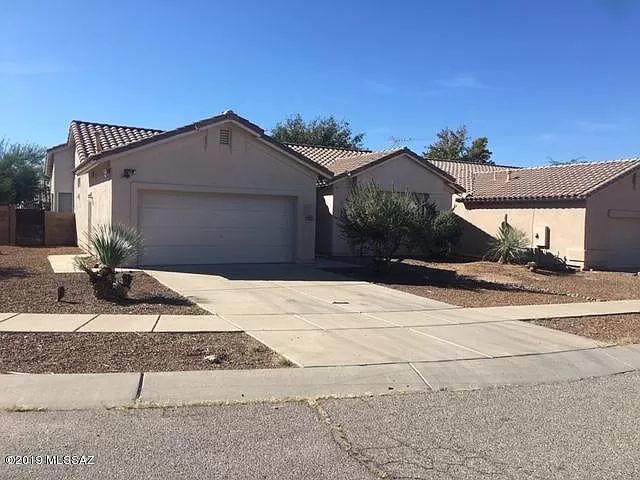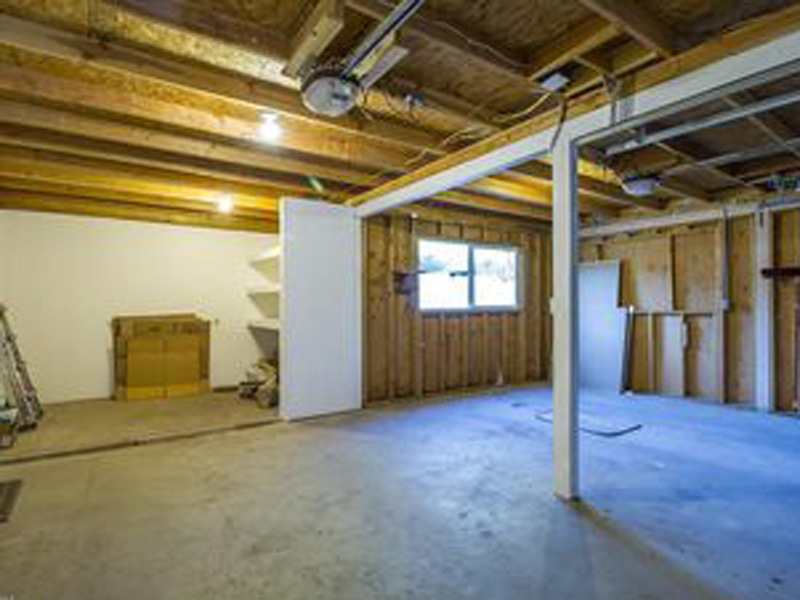My Garage Door Won't Function - Rapid Repair Solutions
Is Your Garage Door Stuck? Here's What to Do First
When your garage door won't open up, begin with these essential safety checks before trying any kind of fixings. Initially, make certain no one is standing near the door and that lorries are free from the opening. Search for evident indications of damage like damaged panels, curved tracks, or hanging wires. If you see a snapped springtime or seriously harmed elements, quit promptly and call an expert—-- these repairs require specialized tools and proficiency to deal with safely.

Check These 6 Points Prior To Calling a Professional
Before assuming you need costly repair services, go through this fast analysis list that solves most garage door issues:
-
Power source: Confirm the opener is connected in and the electrical outlet is functioning
-
Remote batteries: Replace dead batteries in your remote
-
Manual lock: Inspect if somebody accidentally engaged the hands-on lock
-
Blockages: Seek particles blocking the door's course or sensors
-
Emergency launch: Guarantee the red emergency situation cable hasn't been pulled
-
Circuit breaker: Verify the garage circuit hasn't stumbled
These easy checks solve around 70% of garage door issues without calling for expert treatment.
10 Typical Reasons Your Garage Door Won't Open
Understanding why your garage door opener isn't functioning aids you choose the ideal option. Right here are one of the most regular causes house owners encounter:
Dead remote batteries stand for the easiest fix—-- when batteries die, the remote can not send signals to the opener. Power failures or tripped breakers reduced power to the motor. Busted springtimes avoid the door from lifting effectively and need prompt expert focus. Sensing unit misalignment causes security systems to block door procedure. Track blockages stop rollers from relocating efficiently. Electric motor overload triggers automatic shutoffs when the opener discovers resistance. Limitation button issues perplex the opener regarding door position. Wire damage interrupts the training mechanism. Weather-related concerns affect door activity throughout severe temperature levels. Component wear from age slowly reduces system efficiency.
Problem # 1: Dead Push-button Control Batteries
When your wall button functions yet your remote does not, dead batteries are normally the offender. Most garage door remotes use either 3-volt lithium or 12-volt alkaline batteries. Get rid of the back cover of your remote and inspect the battery kind. Change with fresh batteries and test the remote. why garage door light flashes but won’t close If it still doesn't function, you might require to reprogram it to your opener. Consult your opener's manual for specific reprogramming guidelines, as the process differs by producer.
Problem # 2: Power Supply Issues
Garage door power issues often stem from loosened connections or tripped circuits. Inspect that the opener is securely linked into its electrical outlet—-- vibration can loosen up connections gradually. Evaluate the outlet with another tool to validate it's functioning. Examine your home's breaker box for stumbled circuits, particularly if you've experienced storms or power fluctuations. GFCI outlets may have stumbled and need resetting. If the opener has power yet won't react, the concern most likely lies somewhere else in the system.
Problem # 3: Broken or Damaged Springs
Damaged garage door springtimes are amongst the most unsafe components to handle. If you hear a loud bang from your garage or see the door really feels very hefty when trying to raise by hand, a spring has actually likely snapped. Torsion springtimes run flat over the door, while extension springtimes sit on either side. Never ever attempt spring repairs on your own—-- these components save incredible tension that can cause severe injury or fatality. Specialist replacement generally costs $150-$300 yet ensures your safety.
Issue # 4: Blocked Security Sensors
Modern garage doors include safety sensors that stop closure when objects are detected. These sensing units can stop the door from opening if they're filthy, misaligned, or obstructed by debris. Clean sensing unit lenses with a soft towel and make certain nothing obstructs the unnoticeable beam of light between them. Examine that sensing units are effectively aligned—-- many have sign lights that reveal link condition. Sensing unit issues often solve with easy cleansing and adjustment.
Problem # 5: Track Obstructions or Damage
Garage door tracks guide rollers as the door goes up and down. Dirt, debris, old grease, or small items can jam the system. Inspect tracks aesthetically and eliminate any type of obstructions with a brush or towel. Seek dents, bends, or warping that can hamper smooth operation. Small track changes are feasible for convenient property owners, yet significant damages calls for specialist repair service to avoid further issues or safety and security hazards.
Trouble # 6: Garage Door Opener Motor Issues
When the garage door electric motor runs yet the door doesn't move, numerous problems could be responsible. The motor might be strained and shutting down as a precaution. Gear wear, especially in older units, can prevent correct procedure. Chain or belt drive issues influence power transmission. If you listen to unusual grinding, clicking, or humming audios, stop using the opener promptly. Electric motor repairs frequently cost more than substitute, particularly for systems over ten years old.
Step-by-Step DIY Troubleshooting Overview
Follow this methodical strategy to garage door troubleshooting while focusing on safety and security throughout the procedure:
Action 1: Evaluate the wall switch first. If it works however the remote doesn't, focus on remote problems. If neither jobs, inspect power supply.
Step 2: Check out the hand-operated release cable. If it's been pulled, the opener is disengaged from the door. Push the trolley back to reconnect.
Action 3: By hand examine the door by disengaging the opener and attempting to raise the door by hand. It needs to relocate smoothly and remain in location when half-open.
Tip 4: Examine visible parts for damage, paying unique focus to springtimes, cable televisions, and tracks.
Step 5: Examine all safety attributes consisting of sensors, limit switches, and auto-reverse functions.
Action 6: Examination various controls (remote, wall surface switch, keypad) to isolate the trouble resource.
Constantly wear safety glasses and job gloves when executing evaluations, and never effort repair services on springtimes or high-tension parts.
When to Call an Expert vs. do it yourself Solutions

Recognizing when to call a garage door expert versus attempting DIY repairs safeguards both your security and your budget. Manage these problems on your own: dead remote batteries, power supply issues, minor track cleansing, sensing unit cleaning and alignment, and basic lubrication.
Never attempt these repair work yourself: springtime replacement or modification, cord repair work, major track realignment, electrical wiring problems, opener motor substitute, or any kind of fixing including high-tension components. Professional technicians have specialized tools, training, and insurance coverage to take care of dangerous repair work securely.
Think about repair work costs versus replacement expenses, specifically for doors over 15 years old. Modern garage doors offer much better security functions, power performance, and dependability than older versions.
Emergency Situation Garage Door Solutions
When you're stuck with a garage door that won't open and need immediate gain access to, follow these emergency situation procedures:
Manual Operation: Draw the red emergency launch cord to disengage the opener. This allows hands-on operation but requires appropriate technique to prevent injury. Lift the door gradually and equally, making use of leg muscles as opposed to your back. Many residential doors consider 100-150 extra pounds, making them workable for a lot of grownups.
Short-lived Fixes: If the door opens up by hand yet won't stay up, prop it open with sawhorses or clamps—-- never utilize your body or automobiles as supports. For doors that won't close totally, ensure the opening is secured if you should leave.
Emergency Service: Numerous garage door business offer 24/7 emergency situation service for scenarios involving safety concerns, trapped cars, or total system failures. While extra pricey than routine service calls, emergency situation repairs provide prompt options when required most.
Safety and security Warning: What NOT to Do
Garage door safety calls for comprehending dangerous repairs that ought to never be attempted by home owners:
Never ever try to repair springs—-- they save enough energy to cause fatal injuries when they break or are poorly handled. Don't require a stuck door—-- this can damage the opener, tracks, or door panels, creating a lot more costly troubles. Avoid bypassing safety functions—-- sensing units and auto-reverse devices stop serious injuries and residential property damages.
Do not overlook weird sounds—-- grinding, scuffing, or banging audios indicate issues that worsen with time. Never utilize the door if cables are torn or damaged—-- the door can drop unexpectedly. Don't try electric fixings unless you're a qualified electrical expert—-- garage door openers make use of both 120V house present and low-voltage control circuits.

Preventative Maintenance to Prevent Future Problems
Routine garage door maintenance protects against most usual issues and extends system lifespan significantly:
Monthly Tasks: Visual assessment of all elements, testing auto-reverse safety functions, checking and tightening up equipment, and cleansing tracks and sensors.
Quarterly Tasks: Lubricating all relocating parts with appropriate garage door lubricant, screening handbook operation, and checking weather condition securing.
Yearly Tasks: Specialist inspection and tune-up, spring modification if needed, and opener maintenance including belt or chain modification.
Seasonal Tasks: Getting ready for weather extremes, checking insulation, and changing opener settings for temperature level changes.
Consistent maintenance expenses far less than emergency fixings and guarantees reliable procedure year-round.
Garage Door Will Not Open Up FAQs
Why won't my garage door open with the remote however deals with the wall button?
This typically indicates dead remote batteries, signal interference, or the requirement to reprogram the remote. Inspect batteries first, then consult your opener handbook for reprogramming guidelines.
Can I manually open my garage door if the power is out?
Yes, pull the red emergency launch cord to disengage the opener, after that raise the door manually. Be prepared for the door's full weight and lift with appropriate strategy to avoid injury.
How do I understand if my garage door springtime is broken?
Indications include a loud bang from the garage, the door feeling incredibly hefty when lifting by hand, visible spaces in the spring coils, or the door only opening a couple of inches prior to quiting.
Is it risk-free to use my garage door if it will not open all the way?
No, partial procedure indicates mechanical problems that can aggravate all of a sudden. Quit utilizing the door and have it inspected by a professional to prevent more damages or injury.
What should I do if my garage door opens up but will not shut?
Inspect safety and security sensors for obstructions or misalignment, examine the tracks for debris, and test the auto-reverse feature. If these do not resolve the issue, speak with a professional.
Just how much does it set you back to repair a garage door that won't open up?
Expenses vary extensively depending on the trouble: battery replacement ($5-$10), professional diagnosis ($50-$100), spring substitute ($150-$300), or opener substitute ($200-$500).
Can weather influence my garage door's capability to open up?
Yes, severe cold can thicken lubes and influence steel components, while heat can trigger development concerns. The majority of troubles resolve as temperature levels stabilize, however persistent issues may require expert attention.
Why does my garage door open up a couple of inches after that stop?
This usually shows busted springtimes, limit switch issues, or track obstructions. The opener's safety attributes stop operation when resistance is found, avoiding damages to the electric motor or door.
Get Specialist Aid for Facility Problems
When do it yourself troubleshooting doesn't settle your garage door troubles, expert service technicians supply the know-how and tools needed for risk-free, long lasting repair services. Certified experts diagnose issues properly, utilize manufacturer-approved components, and provide guarantees on their work.
Specialist solutions include: extensive system evaluations, spring and cord replacement, opener repair and replacement, track alignment and substitute, electric troubleshooting, and emergency situation solution telephone calls.
What to expect: ahead of time pricing, accredited and insured professionals, same-day service for numerous repair work, and follow-up upkeep recommendations.
The majority of garage door business supply free estimates for significant repair work and can offer instant remedies for immediate troubles influencing home protection or vehicle accessibility.
Getting Your Garage Door Working Again
A garage door that will not open doesn't need to destroy your day or damage your spending plan. Begin with straightforward troubleshooting steps like checking power, changing batteries, and checking out for evident blockages. Many troubles have quick DIY solutions that restore normal operation within mins.
Nevertheless, identify when professional help is necessary—-- especially for spring-related issues, electrical issues, or complex mechanical failings. Attempting unsafe repair services on your own runs the risk of serious injury and typically develops extra pricey issues.
Routine upkeep protects against most garage door issues and makes sure trusted operation for many years ahead. When issues do happen, resolve them promptly to stay clear of more costly repair services and keep your home's security and convenience. Whether you need a basic battery replacement or total system overhaul, options exist to get your garage door working smoothly again.
Eddie's Garage Door Service
5505 N La Canada Dr, Tucson, AZ 85704
(520) 965-8259